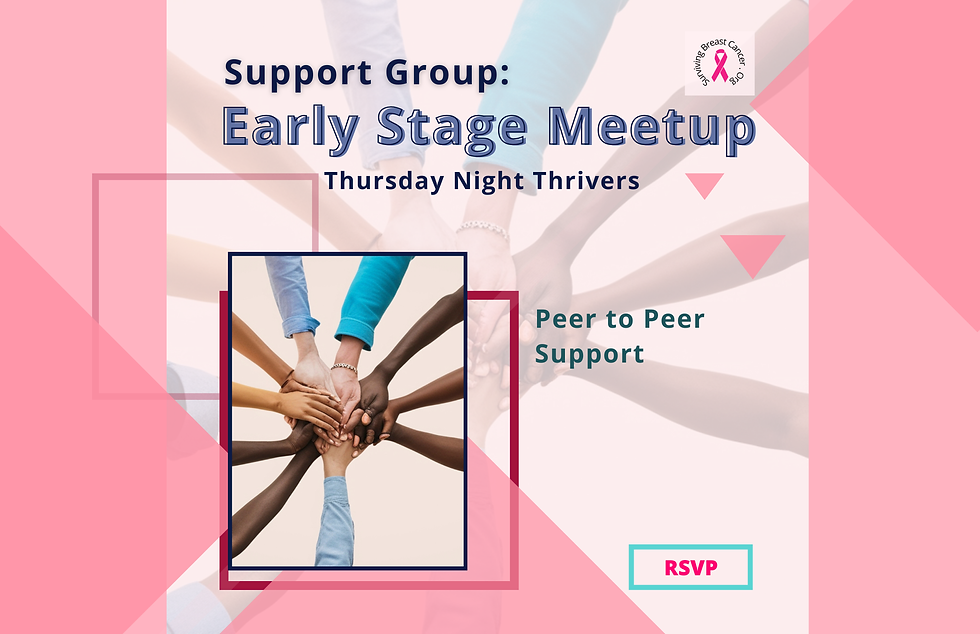Expecting the Unexpected: Anticipatory Grief and Breast Cancer
- Surviving Breast Cancer

- Aug 7, 2022
- 3 min read
Updated: Oct 17, 2025

Have you ever felt preemptively depressed or anxious about something that hasn’t yet happened? Specifically, regarding breast cancer, this may happen if you are awaiting news of a diagnosis, outcomes of a surgery or treatment, or any further development in your cancer. It can also bubble up as we discussed regarding putting down a pet, or if you know that a loved one’s prognosis is not good, and you want to make the most of the time you have left. If so, you’re not alone and are likely experiencing what can be called anticipatory grief.
This phenomenon, while best studied in anticipated loss of life from any cause, can precede any major result or development from breast cancer that is assumed to be detrimental. Specifically, this often occurs within the contexts of receiving a breast cancer diagnosis, anticipating the loss of your breasts, or receiving the news of a metastatic prognosis.

Understanding Anticipatory Grief
In times of uncertainty regarding your or your loved one’s health, it is easy to assume the worst before it has been confirmed. For many, anticipatory grief is a coping strategy that may help soften the blow of an unfavorable outcome, and it can help those struggling to find closure when/if their outcome is realized. With a disease as nuanced and individualized as breast cancer, the way you may cope with it is equally as complex and personal. Common experiences include emotional stress, preoccupation with the uncertain outcome or diagnosis, loneliness or social withdrawal, irritability, anger, or physical changes such as increased or loss of appetite, or even pain/body aches.
The key point to understand is that while it may seem counterintuitive to be sad about something that hasn't yet been confirmed or hasn't happened yet, especially to an outside party, it is completely normal to experience anticipatory grief. It is also more common than you might think; even those experiencing other kinds of losses, such as when your child is moving out for college or you’re moving cities for a new job, can experience grief over these impending changes. It’s something we need to bring to light and talk more about to normalize these feelings and emotions.
Coping with Anticipatory Grief
While it is hard to say definitively what may or may not help in coping with anticipatory grief, as it is an intrinsically personal experience, there are some strategies that may work for you. First and foremost, it is important to let yourself feel any grief as you experience it. Grief has four general purposes, including accepting the loss, processing your feelings towards it, adjusting to a “new normal”, and connecting you to those around you in a different way in light of the change.
By allowing yourself to work through these issues beforehand, it shortens the time you need to process should you receive less than favorable news in the future. Other coping methods include regular exercise, activities like art, reading, or dance, journaling, and attending a support group or seeking help from a trained mental health professional.

No matter how your breast cancer journey progresses, know that it is okay to grieve at any stage, as a cancer diagnosis is a major life change that you may need time to process fully. If you’ve experienced anticipatory grief and are willing to share your story, we’d love to hear about it! You can see additional breast cancer stories from our readers here. For those looking for additional support, download the SurvivingBreastCancer.org app, where we have community discussion boards and private groups so that you can connect with others in a similar situation and get peer-to-peer support.











